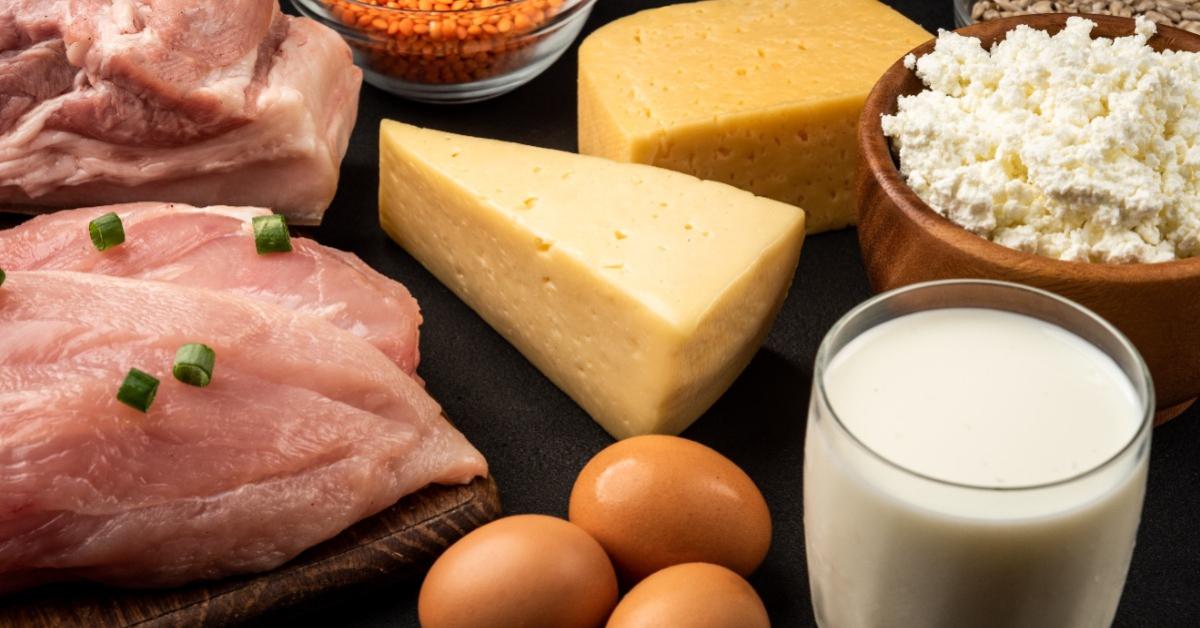
The global food industry is currently undergoing a major transformation in the name of averting “climate change” that will involve the adoption of new technologies in the production process and the creation of alternative food products for consumption. Facilitating this transition has become a key priority of many international organizations and institutions, including the World Economic Forum (WEF), the United Nations, and the Bretton Woods institutions, which consist of the World Bank, the International Monetary Fund (IMF), and the World Trade Organization (WTO).
However, while the role of the WEF in the “Great Food Transformation” has been garnering more attention in recent months, those of the IMF, World Bank and WTO have gone relatively unnoticed. Like the WEF, these institutions have been highlighting the negative effects of the agriculture sector on the climate over the past few years, primarily “crop cultivation and livestock production.” They also claim that, in addition to being detrimental to the environment, meat and dairy products are “unhealthy” foods. According to the IMF, “reducing livestock emissions” is among the key actions needed to meet the “climate neutrality target [also known as net-zero emissions] by 2050,” which will also include “replacing polluting coal, gas and oil-fired power with energy from renewable sources, such as wind or solar” in over 120 countries. With respect to agriculture, the IMF advises “diversifying away from beef production” by “applying enhanced farm management practices and new technologies.”
In fact, the IMF published an article in 2019 urging radical changes on the supply side of food production in order to decrease “emissions in agriculture.” Specifically, this article stated that
global production and consumption of red meat (especially beef) and dairy will need to be cut by about 50 percent, through substitution of proteins supplied by plants. Urgent action in the top three beef (United States, Brazil, European Union) and dairy (United States, India, China) producers is key. Second, a large-scale shift is needed away from conventional monoculture agriculture toward practices that support biodiversity, such as organic and mixed crop-livestock farming, sustainable soil management, and ecosystem restoration. Denmark and the Netherlands were among the first countries to announce ambitious organic transformation plans.
Subsequently, in 2020, the IMF stressed the importance of raising the prices of “land-intensive food (for example, beef).” This would help reduce the consumption of animal products by shifting “consumer preferences away” from items like meat, milk, and egg products. In essence, the IMF supports having “taxes levied” on “meat, dairy, and ultra-processed food” in order to “discourage their overconsumption.” According to the IMF:
The average US retail price of a Big Mac, for example, is around $5.60. But with all the hidden expenses of meat production (including health care, subsidies, and environmental losses) the full burden on society is a hefty $12 per sandwich—a price that, if actually charged, could more than halve the US demand for burgers…. Likewise, a gallon of milk would run $9 instead of $3.50 and a store-bought, two-pound package of pork ribs would jump from $12 to $32.
It appears that, much like the WEF, the IMF is so committed to achieving “a Great Food Transformation” that it openly endorses using a centrally planned system to set the quantities and prices of food products to be sold instead of allowing them to be determined through voluntary exchanges in the marketplace, even though this would bring about the demise of economic freedom. The IMF also supports measures aimed at preventing individuals from consuming “animal products for breakfast or lunch.” To encourage the acceptance of these ideas and changes on the part of the people, the IMF has called for promoting the notion that such “dietary changes would entail health benefits as well as public spending savings.”
According to the IMF, achieving “a Great Food Transformation” will also require the redirection of state subsidies and loans toward “sustainable farms producing plant-based protein for human consumption and toward incentives for innovation on alternative proteins and smart farming technologies.” It would also involve “removing tax expenditure favoring products with emission-intensity,” such as “dairy/meat products,” and “providing financial support to R&D initiatives on emission reduction and carbon capture in agriculture.” Additionally, the IMF is of the view that stripping financial institutions of the ability to “lend to nonsustainable agri-food firms” would “provide essential support to a Great Food Transformation.”
The global food crisis was one of the main topics of discussion at the 12th Ministerial Conference of the WTO, which was held in Geneva, Switzerland during June 13–15 and attended by the trade ministers of its 164 member states. It is noteworthy that the current director general of the WTO, Ngozi Okonjo-Iweala, is also an agenda contributor of the WEF. Moreover, she is a former chair of the board at Gavi, the vaccine alliance that was founded in 2000, thanks in large part to contributions from the Bill and Melinda Gates Foundation. Gavi’s efforts to secure “access to new and under-used vaccines for millions of the most vulnerable children” are supported by the World Health Organization, UNICEF, and the World Bank. Okonjo-Iweala recently told the BBC that “a food crisis kicked off by the Ukraine war could last for years without intervention.” That said, she believes that “the WTO can be part of the solution” to the “looming food crisis,” which has “low-income countries” facing “a catastrophic situation if action is not taken at both the national and international levels.” Accordingly, the conference concluded with the WTO adopting a “declaration on the emergency response to food insecurity” whereby it would respond to a food insecurity emergency in any member country by providing it the “technical and financial assistance” required to transform its food industry in ways that would address the crisis while also making the country more resilient going forward. In all likelihood, the WTO will use this “declaration” to coerce its member countries into feeding their hungry populations with new alternative foods, like meats cultured in controlled lab environments and insect proteins.
In December 2021, Juergen Voegele, vice-president of sustainable development at the World Bank, stated that “the world’s natural resources cannot sustain the current footprint of agriculture, especially when it comes to animal feed. To reverse current trends, we need a heavily disruptive and resilient food production model.” He strongly backs insect farming as a potential solution. According to the World Bank, insect farming can “save farmers money and governments hard currency reserves by decreasing food, feed, and fertilizer imports and purchases. Small-scale operations can be established at low cost, opening opportunities for climate resilient jobs.” With that in mind, the World Bank will likely increasingly support the creation of funds that will be used to finance investments in agricultural projects aimed at “combatting climate change,” with a focus on the introducing and promoting new food products, as well as reducing animal products.
Given their track records, it would not be unreasonable to ask why institutions like the IMF, the World Bank, and the WTO are involved in addressing environmental problems in any significant capacity. Throughout their respective histories, the actions of the Bretton Woods institutions have contributed to degrading the environment, expanding the authoritarian power of multinational corporations, and exacerbating social and economic inequality, bankruptcy, indebtedness, food insecurity, malnutrition, and hunger in many poor countries around the world. They have done this by using “their considerable influence to facilitate” the adoption of economic reforms, policies, and trade agreements in “countries on all continents, which has allowed transnational corporations to gain significant control over the world economy” (see Birsen Filip, The Rise of Neo-liberalism and the Decline of Freedom [Cham, Switzerland: Palgrave Macmillan, 2020], pp. 230).
Since the mid-1990s, many of the international agreements and economic reforms promoted by the Bretton Woods institutions have directly contributed to slashing the incomes of small and medium-sized farmers around the world, leading many of them to go bankrupt. In the case of India, this has resulted in approximately “182,936” farmers committing suicide “between 1997 and 2007.” Additionally, a 2020 study by the Centers for Disease Control and Prevention revealed that “farmers are among the most likely to die by suicide, compared with other occupations,” and that “suicide rates overall had increased by 40 percent in less than two decades” among US farmers. In particular, the patenting of seeds and plants allowed under the WTO Trade-Related Aspects of Intellectual Property Rights (TRIPS) Agreement, which was signed in 1994, has destroyed the livelihoods of many farmers, while benefitting the interests of large corporations and businesses.
No one should be under the illusion that noble ends are behind the measures being proposed by the IMF, the World Bank, and the WTO to combat “climate change.” This is evidenced by the detrimental impacts of the past policies and rules that these same institutions designed and promoted in order to govern the production and trade of food. They are not the saviors of the masses that they purport themselves to be. Rather, they are valuable actors in bringing “the Great Reset” to fruition. In essence, they want to eliminate spontaneous order in favor of an artificially ordered society wherein isolated and landless masses who do not own any property are expected to endure a life of servitude under the rule of global governance.






